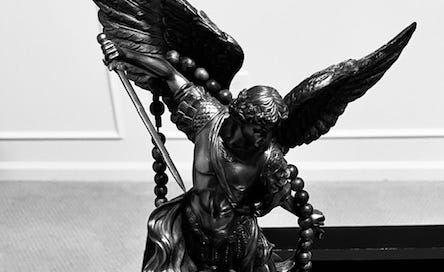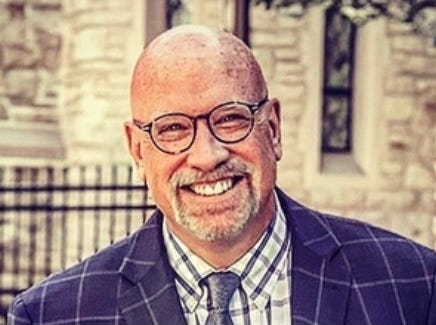Faith, in its most profound sense, is not a mere acknowledgment of God’s existence or a belief in His power. It is a surrender, a trust that transcends understanding, and an unwavering confidence in the One who holds the future. This statement, "Faith is not knowing what the future holds, but Who holds it," encapsulates the very essence of the Christian life. Faith is both a gift from God and a response to Him, calling believers to rely entirely on Divine Providence rather than their own plans and desires. Throughout Scripture, Church doctrine, and the teachings of the early Church Fathers, we see the call to trust in God despite uncertainty, recognizing that He alone is sovereign over all things.
Faith as Defined by Catholic Teaching
The Catechism of the Catholic Church (CCC) defines faith as "man’s response to God, who reveals Himself and gives Himself to man" (CCC 26). It further teaches that faith is "the assurance of things hoped for, the conviction of things not seen" (Hebrews 11:1). In other words, faith is not dependent on tangible proof or knowledge of the future but on the unwavering belief in God's plan and providence.
Faith is also deeply intertwined with trust in God's goodness. The Church teaches that God, as our loving Father, desires what is best for us. St. Augustine famously declared, "Faith is to believe what you do not see; the reward of this faith is to see what you believe." Thus, our faith does not demand a clear vision of what lies ahead but rather a deep trust in the One who guides us.
Mary, the Mother of God, is the greatest example of faith. When the Angel Gabriel announced that she would conceive the Son of God, Mary did not demand clarity or assurance. Instead, she responded with profound trust: "Behold, I am the handmaid of the Lord; let it be done to me according to your word" (Luke 1:38). Mary’s fiat embodies the perfect act of faith, a surrender to God's will even when the future remains uncertain.
The Teachings of the Early Church Fathers
The Early Church Fathers echoed this understanding of faith as a trust in God's divine plan rather than in human certainty. St. Ignatius of Antioch, in his letters, wrote extensively about his journey to martyrdom, expressing complete confidence in God’s will. In his Letter to the Romans, he proclaimed, "I am God’s wheat, and I shall be ground by the teeth of beasts, that I may become the pure bread of Christ." Despite the unknown awaiting him, his faith was placed entirely in God's hands.
Similarly, St. John Chrysostom emphasized that faith does not require knowledge of future events but trust in God's perfect will: "When you see wicked men strong and flourishing, and the just suffering extreme misery, do not be disturbed. Do not ask, 'Why is it so?' but wait till the end." His words remind us that faith is not based on what we can see or understand but on the certainty that God is in control.
St. Augustine also wrote about faith’s role in the believer’s journey: "Understanding is the reward of faith. Therefore, seek not to understand that you may believe, but believe that you may understand." Faith, then, precedes human comprehension, and our trust in God leads us to greater spiritual understanding in His time.
Scriptural Foundations of Faith
The Bible is filled with teachings about faith, repeatedly affirming that true faith is trust in God despite an uncertain future. Perhaps one of the most well-known passages is from Proverbs:
"Trust in the Lord with all your heart, and do not lean on your own understanding. In all your ways acknowledge Him, and He will make straight your paths" (Proverbs 3:5-6).
This passage reminds believers that faith requires them to relinquish their reliance on human reasoning and instead trust in God’s divine plan. Even when circumstances seem unclear, God is leading us toward His purpose.
Psalm 23 is another beautiful testament to trusting in God's guidance:
"The Lord is my shepherd; I shall not want. He makes me lie down in green pastures. He leads me beside still waters. He restores my soul. He leads me in paths of righteousness for His name’s sake. Even though I walk through the valley of the shadow of death, I will fear no evil, for You are with me" (Psalm 23:1-4).
Here, the Psalmist illustrates how faith is the confidence that God is always leading us, even in the darkest of times. We do not know the future, but we know that He walks with us.
Jesus Himself speaks extensively on faith in the Gospels. In Matthew 6:25-34, He teaches about trusting in God’s provision:
"Therefore, I tell you, do not be anxious about your life, what you will eat or what you will drink, nor about your body, what you will put on. Is not life more than food, and the body more than clothing? ... But seek first the kingdom of God and His righteousness, and all these things will be added to you."
Jesus reassures His followers that worry about the future is unnecessary when one has faith in the Father. We are called to live in the present moment, trusting that God holds our tomorrows.
The Example of Abraham: The Father of Faith
One of the greatest examples of faith in Scripture is Abraham. God called him to leave his homeland and go to a place that He would show him (Genesis 12:1). Abraham obeyed, not knowing where he was going, demonstrating that faith is not about having all the answers but trusting the One who does.
In Hebrews 11, Abraham’s faith is praised:
"By faith Abraham obeyed when he was called to go out to a place that he was to receive as an inheritance. And he went out, not knowing where he was going" (Hebrews 11:8).
This passage perfectly aligns with the theme that faith is not knowing what the future holds, but trusting in God, who holds it.
Faith in the Christian Life
Living by faith means entrusting every aspect of life to God’s hands. This includes our personal struggles, vocational discernment, family decisions, and even suffering. St. Paul teaches:
"We walk by faith, not by sight" (2 Corinthians 5:7).
Our faith journey requires stepping forward in trust, knowing that God is always with us, even when the road is unclear.
This concept is especially relevant when facing trials. The Book of Job presents a powerful example of enduring faith. Job, despite losing his wealth, health, and family, refused to curse God. Instead, he declared:
"Though He slay me, I will hope in Him" (Job 13:15).
Job’s story reminds believers that faith is not conditional on receiving blessings but remains steadfast even in suffering.
Conclusion: Faith in God's Hands
Faith is not about having control over the future but about entrusting that future to the One who reigns over all time. Church doctrine, the teachings of the Early Church Fathers, and Scripture all confirm this truth. From Mary’s humble fiat to Abraham’s unwavering obedience, from the Psalmist’s cries of trust to Jesus’ exhortations to abandon worry, the message is clear: we do not need to know what the future holds as long as we know Who holds it.
As believers, we are called to live in complete surrender, placing our trust in God’s providence rather than in our own plans. This is the essence of faith: not certainty in outcomes, but certainty in God. And as St. Paul assures us:
"And we know that for those who love God all things work together for good, for those who are called according to His purpose" (Romans 8:28).
Thus, we journey forward not with fear, but with faith, knowing that our future is safely in the hands of the Almighty.
Welcome to the St Michael’s Group! In a world facing a decline in religious belief and an increase in moral confusion, the need to reignite our faith has never been more critical. Religion’s capacity to offer meaning, foster ethical behavior, and build cohesive communities is vital for countering the spread of spiritual apathy and the influence of evil. By renewing our commitment to faith, we can combat the forces that seek to divide and weaken us. Reigniting our faith lives, therefore, is not just a personal endeavor but a collective responsibility. It is essential for preserving the moral and spiritual fabric of our society, ensuring that love, compassion, and justice continue to be the guiding principles of human existence.
This is why I started the St. Michael’s Group Substack and Podcast. Join us today stmichaelsgroup.substack.com and let’s start a movement of reigniting faith, family, and formation back into our lives.
This is Dr. Currie Myers. I am an applied criminologist and criminal justice ethicist. I have been on faculty in the criminology department at Benedictine College for over 13 years and was a career law enforcement officer for 24 years. Most importantly I have a beautiful family. My wife and I have been married for 37 years, and we have five children and 10 grandchildren. You can view my work on applied criminology at drcurriemyers.substack.com. Have a great and blessed week and please subscribe and share this podcast with others. And more importantly, if you are struggling in life and need someone to talk to, we have a chat function that you can contact me directly. And if you wish for me to speak at one of your events, please contact (catholicspeakers.com) to schedule.
Are you interested in helping to fund our work? Go to this link About - St Michael's Group and you can visit our PayPal QR Code, or you can reach out to me in our chat function for further directions. It would be much appreciated!
About the Author: Dr Currie Myers, America's Criminologist - Author, Convert, Family Issues, Fatherhood, Men's Issues, Motivational, Pornography, Radio / TV, Social Issues, Spiritual Warfare, Virtues Catholic Speaker Contact (catholicspeakers.com) for Dr. Myers to speak at your event!

















Share this post